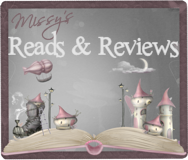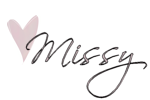There are many sub-genres that make up the Young Adult genre and within those sub-genres, there are some that are similar yet vastly different. In order to learn more about YA and all of its greatly used sub-categories, I thought I would make a post on their definitions and notes on those that may be similar.
First, what is Young Adult?
Young Adult is a genre of fiction that is written for, published for, or marketed to adolescents and young adults from the ages of twelve to eighteen - though the actual audience age range varies greatly from this.
YA Sub-Genres:
· Apocalyptic: centers around the end of civilization through natural disasters, nuclear war, plague or other disasters.
· Chick Lit: light-hearted stories that deal with issues or modern womanhood, though typically not considered a sub-genre of romance because familial and friendly relationships are just as important as romantic ones.
· Contemporary: literature in a post World War II setting.
· Dystopian: set in a less than perfect world that explores political and social structures, often characterized by an authoritarian or totalitarian form of government.
· Fairy Tale: short narratives or retellings that involves folkloric characters like dwarves, elves, fairies, giants, gnomes, goblins and trolls, often including enchantments and/or magic.
· Fantasy: stories that use magic and other supernatural forms as the primary plot, theme and/or setting.
· GLBT: includes protagonist that is a non-heterosexual.
· Historical: set in the past, oftentimes during a significant period in time.
· Horror: story intended to scare or horrify the audience, typically including some type of supernatural element.
· Mystery: deals with a puzzle element and solution, OR may deal with crimes that are not always solved by the end of the story.
· Mythology: explains how the world and/or mankind came to be, typically with a god or supernatural hero as the main character.
· Paranormal: stories including experiences that are unusual and lack scientific explanation, and deals with things like supernatural creatures, clairvoyance, ESP, psychics, telepathy, and/or UFOs.
· Paranormal Romance: stories that focus on romantic relationships with the supernatural.
· Post-Apocalyptic: set in a world after apocalyptic disaster.
· Realistic Fiction: tells the story of a fictional character dealing with real life problems set in the present.
· Romance: story in which the conflict and climax center around the development of a romantic relationship.
· Science Fiction: deals with futuristic speculations in science and/or technology.
· Steampunk: refers to time in history where steam power was widely used - usually in Victorian era England - with elements of science fiction and/or fantasy.
· Supernatural: fiction about angels, demons, ghosts, shape shifters, vampires, werewolves and/or witches.
· Suspense: dramatic work that deals with uncertainty and anxiety toward a certain action's outcome, often depending on a lot of tension written throughout the story.
· Thriller: story with a fast pace, frequent action and a hero that must thwart plans of an enemy.
· Urban Fantasy: subset of fantasy with magical/supernatural elements in a real-world, urban setting.
· Utopian: story involving a perfect society/world.
First, what is Young Adult?
Young Adult is a genre of fiction that is written for, published for, or marketed to adolescents and young adults from the ages of twelve to eighteen - though the actual audience age range varies greatly from this.
YA Sub-Genres:
· Apocalyptic: centers around the end of civilization through natural disasters, nuclear war, plague or other disasters.
· Chick Lit: light-hearted stories that deal with issues or modern womanhood, though typically not considered a sub-genre of romance because familial and friendly relationships are just as important as romantic ones.
· Contemporary: literature in a post World War II setting.
· Dystopian: set in a less than perfect world that explores political and social structures, often characterized by an authoritarian or totalitarian form of government.
· Fairy Tale: short narratives or retellings that involves folkloric characters like dwarves, elves, fairies, giants, gnomes, goblins and trolls, often including enchantments and/or magic.
· Fantasy: stories that use magic and other supernatural forms as the primary plot, theme and/or setting.
· GLBT: includes protagonist that is a non-heterosexual.
· Historical: set in the past, oftentimes during a significant period in time.
· Horror: story intended to scare or horrify the audience, typically including some type of supernatural element.
· Mystery: deals with a puzzle element and solution, OR may deal with crimes that are not always solved by the end of the story.
· Mythology: explains how the world and/or mankind came to be, typically with a god or supernatural hero as the main character.
· Paranormal: stories including experiences that are unusual and lack scientific explanation, and deals with things like supernatural creatures, clairvoyance, ESP, psychics, telepathy, and/or UFOs.
· Paranormal Romance: stories that focus on romantic relationships with the supernatural.
· Post-Apocalyptic: set in a world after apocalyptic disaster.
· Realistic Fiction: tells the story of a fictional character dealing with real life problems set in the present.
· Romance: story in which the conflict and climax center around the development of a romantic relationship.
· Science Fiction: deals with futuristic speculations in science and/or technology.
· Steampunk: refers to time in history where steam power was widely used - usually in Victorian era England - with elements of science fiction and/or fantasy.
· Supernatural: fiction about angels, demons, ghosts, shape shifters, vampires, werewolves and/or witches.
· Suspense: dramatic work that deals with uncertainty and anxiety toward a certain action's outcome, often depending on a lot of tension written throughout the story.
· Thriller: story with a fast pace, frequent action and a hero that must thwart plans of an enemy.
· Urban Fantasy: subset of fantasy with magical/supernatural elements in a real-world, urban setting.
· Utopian: story involving a perfect society/world.
Apocalyptic VS Post-Apocalyptic
The easiest way to remember the difference is this: one happens during (apocalyptic) and the other is always after (post-apocalyptic).
Chick Lit VS Romance
In romance, the story always revolves around the romantic relationship. In Chick Lit, there may be romance.. but it's not the main plot of the story.
Contemporary VS Realistic Fiction
While both deal with real life issues, realistic is present (now) where contemporary can take a setting anywhere from 1945 to present.
Dystopian VS Utopian
Utopian always deals with a perfect world, while Dystopian is quite the opposite.
Paranormal VS Supernatural
Supernatural always deals with JUST unearthly beings where as paranormal may deal with humans with extraordinary abilities.
The easiest way to remember the difference is this: one happens during (apocalyptic) and the other is always after (post-apocalyptic).
Chick Lit VS Romance
In romance, the story always revolves around the romantic relationship. In Chick Lit, there may be romance.. but it's not the main plot of the story.
Contemporary VS Realistic Fiction
While both deal with real life issues, realistic is present (now) where contemporary can take a setting anywhere from 1945 to present.
Dystopian VS Utopian
Utopian always deals with a perfect world, while Dystopian is quite the opposite.
Paranormal VS Supernatural
Supernatural always deals with JUST unearthly beings where as paranormal may deal with humans with extraordinary abilities.















4 comments:
Thanks for the info ^^ I learned a lot today ^^
Thanks for writing this post. I'm bookmarking it, it's very informative.
Awesome post. Will definitely check back to this whenever I get confused :P
Great post. The mistake that I see most often is use of dystopian for post apocalyptic. If there is no guise of utopia then it's not really a dystopia!
♥ Melissa @ Melissa's Eclectic Bookshelf
Post a Comment